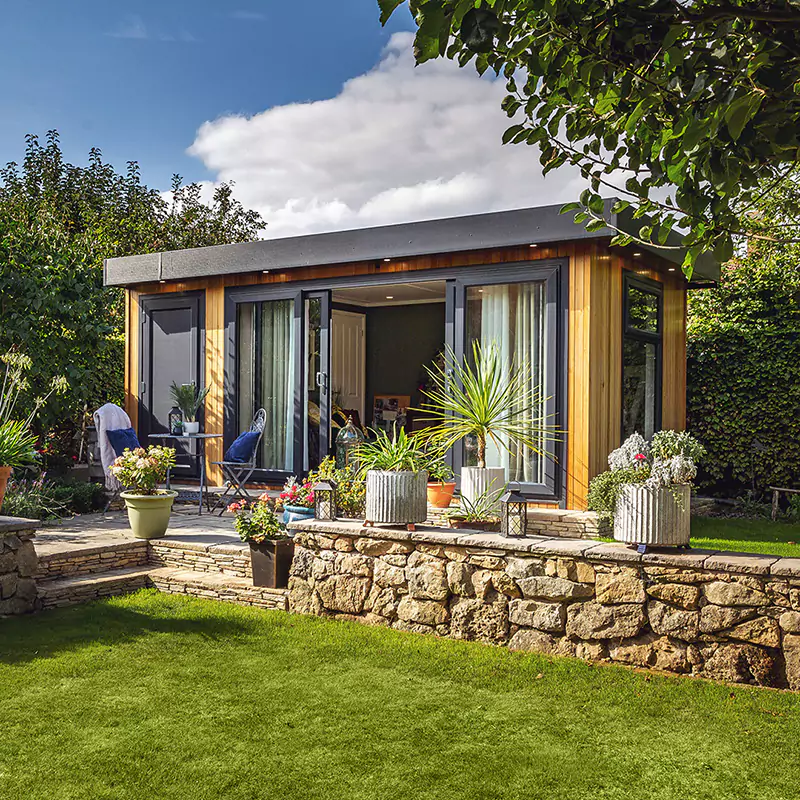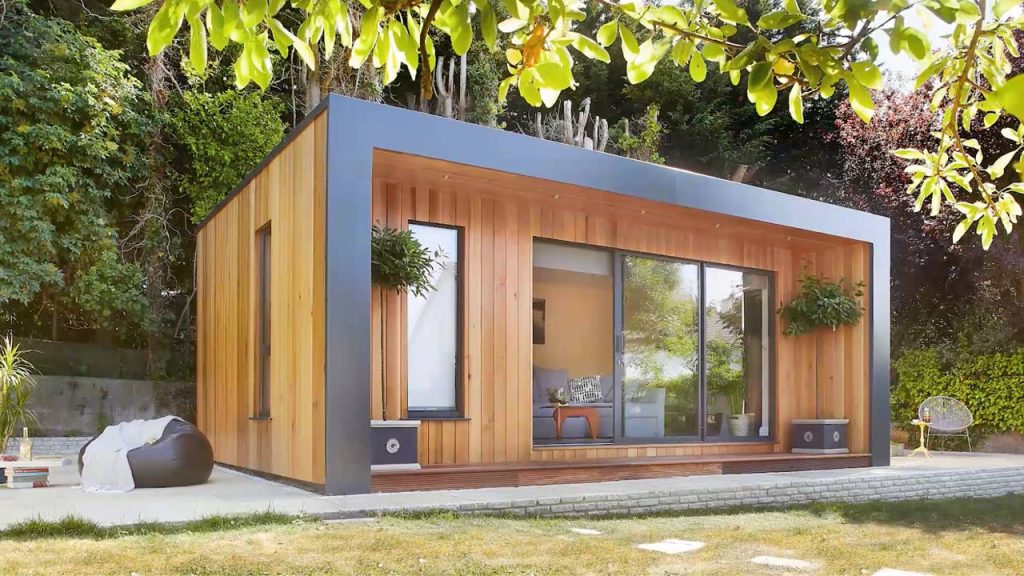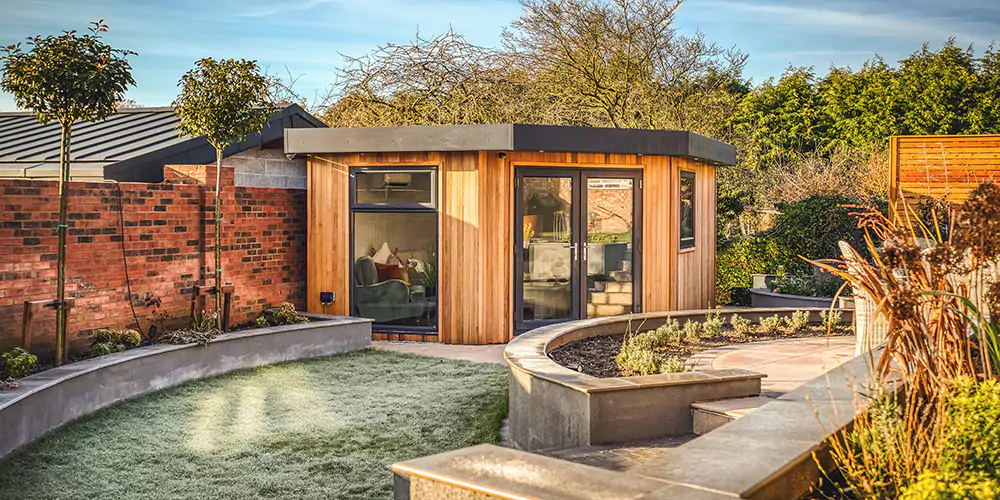Top Reasons On Planning Permission On Garden Buildings
What Planning Permission Do You Need To Build Garden Rooms, Etc. Terms Of Highways Concerns?Highway concerns can influence the necessity for planning approval when building garden rooms, conservatories or outhouses. These are the most important considerations to consider regarding highways:
If the structure is obstructing the view of drivers entering or exiting the property, or affects sight lines at junctions or bends in the road, planning permission is required. The planning authority will determine if the building poses any danger to road safety.
Proximity of the highway
Typically, structures that are built in close proximity to highways such as front garden rooms or extensions close to streets need approval for planning. There are strict distance requirements to ensure the building will not interfere with safe road traffic.
Access and Egress
Changes to access points like the creation of new driveways or changing existing ones to fit the new design are likely to require approval from the planning department. The access point and the egress point must be secured to avoid disruption to traffic.
Parking Provision:
Planning approval is required for new construction that requires parking or alter existing spaces. The authority for planning will assess whether the development provides sufficient parking space and does not result in congestion of parking on the street.
Traffic Generation
Planning permission is required for developments that are likely to create more traffic, such the garden offices which are used as offices for business with clients in attendance. This will include a review of local traffic levels and road conditions.
Impact on Pedestrian Access
Planning permission will be required when the proposed structure is intruding on pedestrian pathways or pavements. The most important thing to consider is to make sure that pedestrian access remains unobstructed, and is safe.
Construction Effects on Highways
It may be necessary to seek planning permission if construction activities impact on the highways. This could include the movement of heavy trucks and temporary obstructions. The planning authorities can set the requirements to minimize disruptions to roads.
Drainage, Water Runoff, and Runoff
Another consideration is the impact of the development on runoff and drainage water, particularly how it impacts roads. The new structure must be accepted by the planning authority to avoid causing flooding and drainage issues on the road.
Street Furniture and Utilities
The planning permission must be obtained if the proposed construction will affect street furniture, underground utilities, or both (e.g. water pipes, cables, etc.). The planning authority will work closely with relevant agencies to address any issues.
Highway Authority Guidelines
Local highway authorities could have guidelines and requirements specific to developments near highways. The planning permission will ensure that these rules are adhered to in order to maintain the safety and efficiency of roads.
Noise and disturbance from traffic:
If the new structure could cause noise disturbance or disruption to traffic (e.g. gardens offices that are visited or receive deliveries) Planning permits will have to be obtained in order to determine these effects and then to reduce them.
Accessibility to Public Transport
Planning permits are required for any development that may affect the accessibility of public transportation facilities such like bus or train stations. The impacts on the public transport users as well as the integration into the transport system will be considered.
In the end, road safety concerns are an important aspect in the approval process of conservatories, garden rooms or garden extensions. The proposed development must not have an adverse impact on safety for road users and pedestrian accessibility or the infrastructure. Consult the local planning authority and the highway authority at an early stage of the planning process to address these concerns. Take a look at the recommended [how to fit composite cladding] for more examples including garden rooms near me, garden room or extension, garden rooms in St Albans, garden office electrics, garden rooms, copyright outbuildings, outhouse buildings, luxury outhouse, garden room planning permission, what size garden room without planning permission and more.

Concerning The Environmental Impact, What Kind Of Planning Permit Would You Need To Get For A Garden Room?
It is important to consider the impacts on the environment when building garden rooms and conservatories. Here are a few of most crucial environmental factors you should consider: Biodiversity, wildlife and the other natural resources.
Planning permission is required when the structure is likely to have an impact on wildlife habitats such as hedgerows, trees, or ponds. It may be necessary to conduct an ecological study to reduce and assess the impact.
Habitats, Protected Species, and Environment:
A permit for planning is required when the property is protected animals (e.g. bats, newts) or is located within or close to habitats of special scientific interest (SSSI). They must be protected by specific precautions.
Preservation Orders for Trees Preservation Orders
A planning permit is needed for every construction that requires the removal or alteration of trees that are protected by TPOs. Local councils will evaluate the impact of the proposed structure, and may require that replacement plantings be constructed or any other mitigation measures.
Risk of flooding and Water Management: Risk and Water Management:
In the case of developments that are located in areas with high risk of flooding or near water bodies, approval for planning is required. A flood risk assessment (FRA) could be required to ensure that the structure doesn't increase the risk of flooding and also has drainage solutions that are adequate.
Sustainable Construction Practices
It may be necessary to obtain planning permission in order to utilize sustainable construction methods and materials. This is a consideration for energy efficiency, insulation, as well as carbon emissions of the construction materials.
Drainage and Surface Water Runoff:
It is crucial to think about the impact on the environment of any construction project. Planning permission is required to ensure that drainage systems are properly constructed in order to prevent flooding and waterlogging.
Soil and Land Stability:
The planning permission is needed when the construction will affect the soil quality or stability. The planning permission is required when the construction could impact soil quality or stability of the land.
Air Quality
If a development is likely to affect the quality of air in the local area (such as near industrial or major roads), planning permission is required. This will ensure that air pollution is within acceptable limits, and that mitigation strategies are in place.
Noise Pollution:
If the proposed use of the extension or garden room is likely to generate significant noise (e.g. or a workshop or music studio) the planning approval is required. The local authorities will evaluate the level of noise to assess the potential negative impact on nearby residents and the surrounding environment.
Waste Management:
The disposal of waste during construction as well as afterward is essential. Planning permission assures that there are enough facilities for recycling and waste disposal to minimize environmental impact.
Energy Efficiency
Planning permission can include conditions for energy efficiency, such as the use of solar panels, high-performance glazing, or other green technology. This helps reduce the carbon footprint of the building.
Environmental Regulations
Environmental regulations are at both the national and local level as well as local level, such as the UK Environmental Protection Act. Planning permission is required to ensure that all legal requirements have been met and that the project will be sustainable in the environmental sense.
The planning permission granted for a garden office outsidehouse, conservatory, or an extension, must take into consideration a number of environmental effects. It is crucial to talk with the local authorities before beginning the process of planning so that you can understand their specific requirements. It will also help ensure the project is sustainable and in line with the relevant regulations. Take a look at the most popular best electric heater for summerhouse for blog recommendations including garden room permitted development, composite summer house, garden room heater, best electric heater for cabin, garden room heater, garden rooms, garden buildings , small garden office, what size garden room without planning permission, garden rooms and more.

What Permits Do You Need For Garden Rooms And Other Structures In Terms Utilities And Infrastructure When It Is Time To Plan?
Planning permission is required to construct gardens, outhouses, or gardens offices. Infrastructure and utilities are additionally important aspects to consider. Here are the major factors to consider. Water supply and drainage
It could be necessary to get planning permission in the event that the structure is connected to the local water supply or drainage system. Local water authorities might be required to consider the impact of any new structure on the water and sewage systems in the area.
Connections to gas and electricity:
Planning permission may be required if the new structure needs to be connected to electricity or gas. This connection must adhere to the building regulations and safety standards.
Utility Easements
Planning permission could be required if the structure is in an area designated for utilities and infrastructure. Construction within these zones may require the approval of local utilities.
Septic Tanks and Sewage Systems
If the new structure is going to require a septic system or an on-site treatment facility for sewerage, a planning permit will be required. In these cases it is crucial to be in compliance with requirements of the environmental and health standards.
Drainage of Surface Water Management
Planning permission could be required to deal with the drainage issue and surface water runoff from the new structure. It could be necessary to adopt measures to stop erosion that causes flooding, erosive erosion and water contamination.
Access to Utilities for Construction
If the construction process requires temporary access to utilities (such as water to be used for purposes of construction) Planning permission might be required. Temporary connections need to comply with safety and environment standards.
Impact on local infrastructure
Planning permission is required to assess the effect of an expansion on local infrastructure, including utilities, roads and public services. The local authority will determine the infrastructure that is in place and whether it can support the development.
Waste Management and recycling:
The planning permission could include requirements regarding recycling and disposal of waste in the construction phase or even after. To minimize environmental impacts, there must have provisions in place for recycling and the disposal of waste.
Energy Efficiency & Renewable Energy
It may be necessary to obtain planning approval prior to installing energy-efficient systems or renewable energy sources (such solar panels and heat pumps) in your new building. Compliance with building codes and environmental standards is crucial.
Telecommunications & Internet Connectivity
Planning permission may be required when the proposed structure is going to require internet or Telecommunications connections. Compliance with the standards and regulations for the infrastructure of telecommunications.
Access to the Footpath and Road:
You may need permission for planning to construct new access roads, footpaths or other routes, or to alter existing ones. Footpaths and roads must adhere to the safety standards of all construction sites.
Accessibility to Public Transport:
If the structure is affecting the accessibility of public transport facilities (such as trains or bus stops) Planning permission might be required. Public transport infrastructure must conform to all rules and standards.
The infrastructure and utilities are key factors that decide the need for planning permission. is required for conservatories, garden offices, outhouses or garden rooms. It's essential to consult with the local authority for planning early in the process of planning to ensure compliance with all applicable laws and guidelines. View the most popular house out house for blog info including garden room, garden office hertfordshire, out house for garden, outhouse builders, garden rooms near me, ground screws vs concrete base, garden room permitted development, garden room heater, small garden office, garden outhouses and more.
